
Letters, documents and manuscripts — Valuable Books and Manuscripts
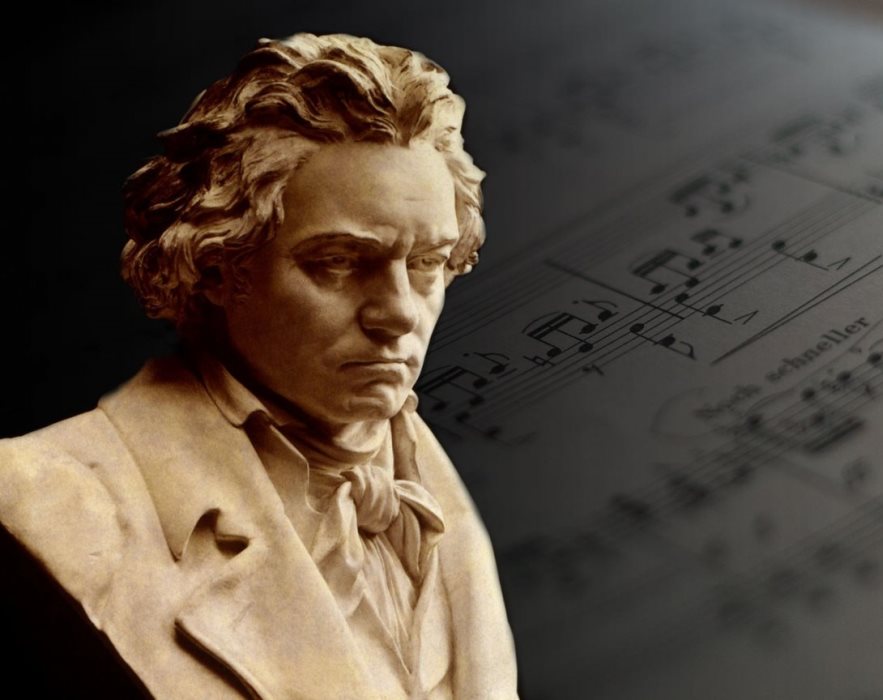
Ludwig van Beethoven was a German composer, pianist, and conductor, one of the most famous and celebrated composers in world history.
Beethoven showed an aptitude for music at a very early age; from the age of four his father began to teach him. Beethoven's early works - piano sonatas and symphonies - were composed under the strong influence of the music of the great classical composers Joseph Haydn and Wolfgang Amadeus Mozart. As Beethoven matured, however, he began to experiment with new forms and harmonic sequences, and his music became more complex and emotionally charged.
Unfortunately, at the height of his talent, Beethoven began to gradually lose his hearing, to the point of complete deafness by the end of his life. Despite this, he continued to compose and conduct, using special devices to feel the vibrations of the music.
Beethoven's work is considered pivotal in classical music and is a bridge between the classical and Romantic eras. His works vividly express a wide range of emotions, from triumph and joy to sadness and despair. Beethoven was also one of the first composers to include soloists and chorus in his symphonies. Beethoven's best-known works include nine symphonies, 32 piano sonatas, 16 string quartets and the heroic opera Fidelio. These and many other works have cemented Beethoven's place in music history as one of the greatest composers of all time. His music continues to be played and studied by musicians and music lovers around the world.

Ludwig van Beethoven was a German composer, pianist, and conductor, one of the most famous and celebrated composers in world history.
Beethoven showed an aptitude for music at a very early age; from the age of four his father began to teach him. Beethoven's early works - piano sonatas and symphonies - were composed under the strong influence of the music of the great classical composers Joseph Haydn and Wolfgang Amadeus Mozart. As Beethoven matured, however, he began to experiment with new forms and harmonic sequences, and his music became more complex and emotionally charged.
Unfortunately, at the height of his talent, Beethoven began to gradually lose his hearing, to the point of complete deafness by the end of his life. Despite this, he continued to compose and conduct, using special devices to feel the vibrations of the music.
Beethoven's work is considered pivotal in classical music and is a bridge between the classical and Romantic eras. His works vividly express a wide range of emotions, from triumph and joy to sadness and despair. Beethoven was also one of the first composers to include soloists and chorus in his symphonies. Beethoven's best-known works include nine symphonies, 32 piano sonatas, 16 string quartets and the heroic opera Fidelio. These and many other works have cemented Beethoven's place in music history as one of the greatest composers of all time. His music continues to be played and studied by musicians and music lovers around the world.
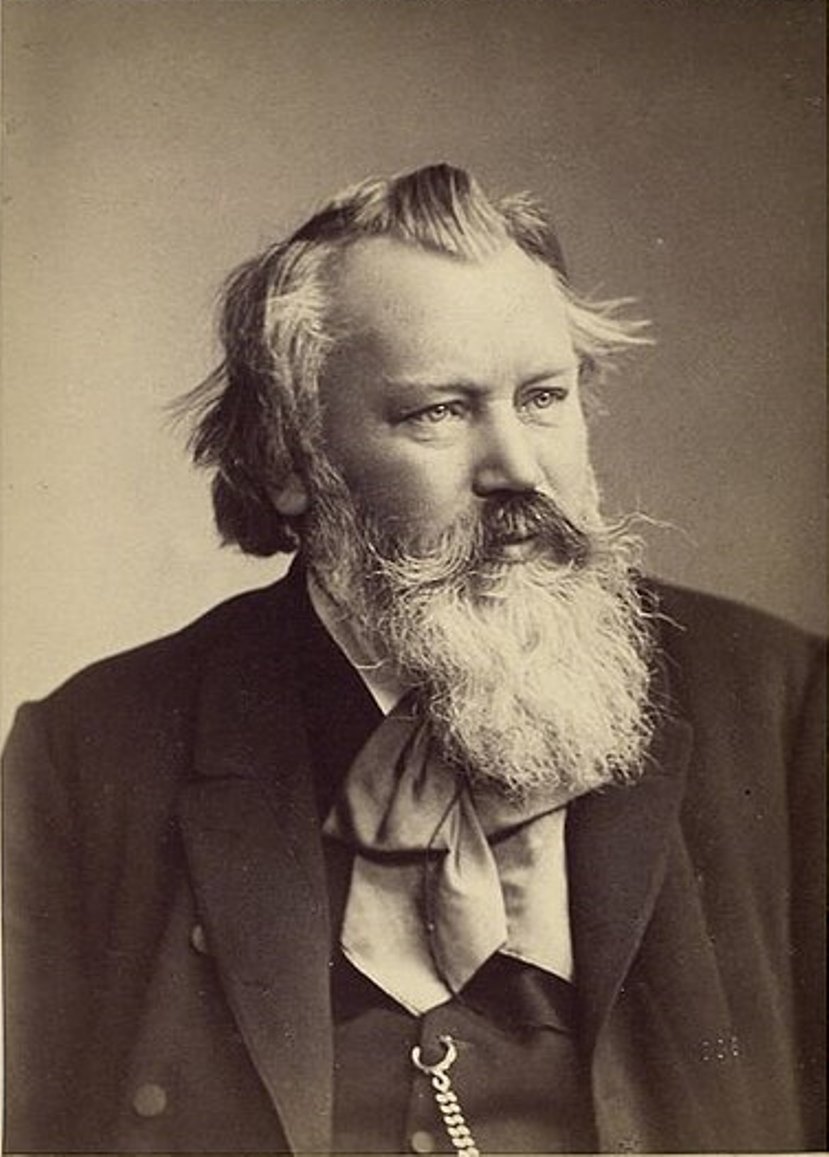
Johannes Brahms was a great German composer, conductor and pianist of the Romantic era.
Johannes showed a talent for music early on, learning to play the piano and earning a living from it; in 1850 he met the Hungarian violinist of Jewish origin Eduard Remenyi - from him he learned gypsy music, which often manifested itself in his later work.
In 1853, Brahms had a fateful encounter with the composer Robert Schumann. Schumann wrote an enthusiastic article about Brahms in a periodical, and from that moment the general public became aware of the young talent. In 1859 Brahms was appointed conductor of the women's choir in Hamburg, which gave him ample time for his own work. During this period he composed two Serenades for orchestra and a String Sextet in B flat major, and completed the Piano Concerto No 1 in D minor. A little later he settled in Vienna and directed the Singakademie choir.
In 1868 Brahms completed his most famous choral work, the German Requiem, which is still considered one of the most important works of 19th century choral music. The following year he composed two volumes of Hungarian Dances for piano duet - these were brilliant arrangements of gypsy melodies, their success was phenomenal, and they were performed all over the world.
For the rest of his life, Brahms never stopped composing works in a wide variety of genres: symphonies, concertos, chamber music, piano works, choral works, waltzes and songs. Brahms was a great master of the symphonic and sonata style of the second half of the nineteenth century, which placed him in the first ranks of German composers. He made his last concert appearance in March 1897, and died of cancer in Vienna in April.
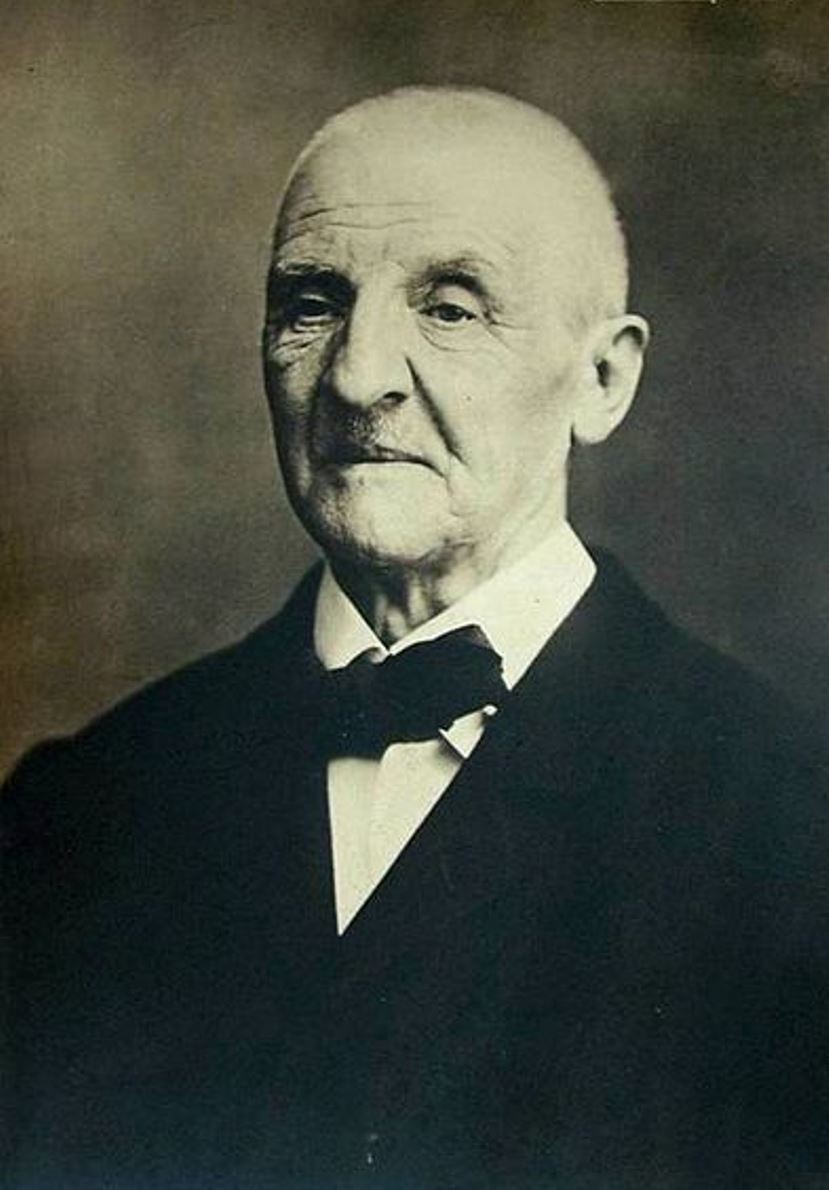
Anton Bruckner, full name Joseph Anton Bruckner, was an Austrian composer, organist and music educator.
Bruckner was born into a poor family, which prevented him from receiving an education suited to his musical talent. His father taught him to play the violin and organ, and he worked as a teacher and organist for many years. Already after the age of 30, he began composing organ and choral works, including the Solemn Mass (1854). In 1855 he became organist at Linz Cathedral and took a five-year course in harmony and counterpoint with the Viennese teacher Simon Sechter. A little later Bruckner studied orchestration with Otto Kitzler, who in 1863 introduced him to the music of Wagner - a powerful impetus for him to begin composing significant compositions.
After moving to Vienna in 1686, Bruckner taught at the Conservatory and the University of Vienna and composed at the same time. Over the next 28 years he wrote most of his famous works: symphonies Nos. 2-9, a string quintet and the Te Deum. But it was not until the premiere of his Seventh Symphony in Leipzig in 1884 that he received the recognition he deserved. Until his death, he continued to compose new works and rework his earlier works.
Anton Bruckner was an outstanding virtuoso organist and a superb teacher. His symphonies are often considered symbolic of the final phase of Austro-German Romanticism, and he also composed much sacred secular choral music and chamber works.
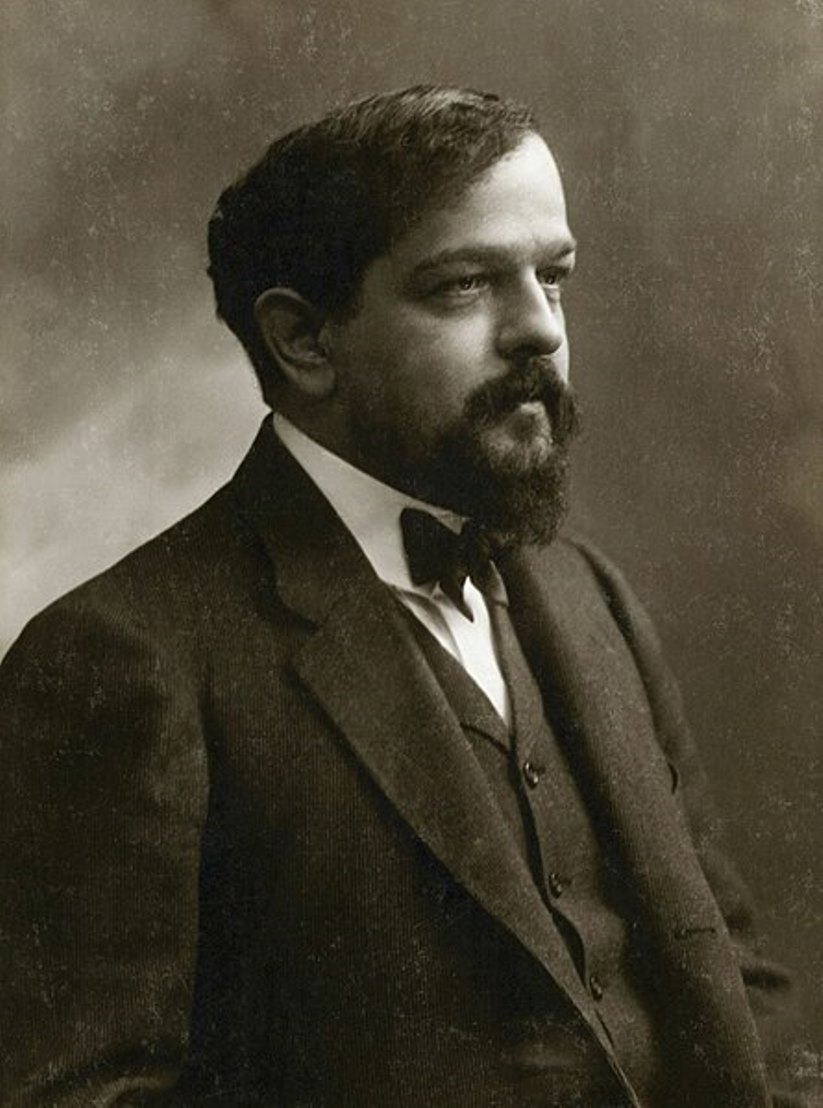
Claude Debussy, full name Achille-Claude Debussy, was a French composer, conductor, pianist and critic, a leading representative of Impressionism in music.
Debussy showed musical talent early and entered the Paris Conservatory. He lived in poverty, but at the same time he learned a luxurious life: the Russian philanthropist and the richest woman, Nadezhda Filaretovna von Meck, took him under her tutelage, he mused with her children and traveled with her around Europe. His sensitive nature could not but respond to all these contrasts. During this period Debussy created one of his masterpieces, Moonlight from the Bergamo Suite.
Debussy spent the summers of 1881 and 1882 near Moscow, at the von Meck estate. In this house Debussy became acquainted with the new Russian music of Tchaikovsky, Borodin, Balakirev and Modest Mussorgsky. His stay in Russia had a beneficial effect on the young musician's development. Debussy was also influenced by the work of Richard Wagner. He developed a highly original system of harmony and musical structure that in many ways expressed the ideals to which the Impressionist and Symbolist artists and writers of his time aspired.
Debussy toured with concerts and conducted his works in England, Italy, Russia and other countries. Claude Debussy's famous works include the Prelude to the Afternoon of a Faun (1894), the operas Pelléas et Mélisande and The Sea (1905), the suite Children's Corner (1906-1908) and the orchestral cycle Images (1912). In 1913 he composed music for the ballet Games, which was performed by Sergei Diaghilev's Russian Seasons company in Paris and London.

Claude Debussy, full name Achille-Claude Debussy, was a French composer, conductor, pianist and critic, a leading representative of Impressionism in music.
Debussy showed musical talent early and entered the Paris Conservatory. He lived in poverty, but at the same time he learned a luxurious life: the Russian philanthropist and the richest woman, Nadezhda Filaretovna von Meck, took him under her tutelage, he mused with her children and traveled with her around Europe. His sensitive nature could not but respond to all these contrasts. During this period Debussy created one of his masterpieces, Moonlight from the Bergamo Suite.
Debussy spent the summers of 1881 and 1882 near Moscow, at the von Meck estate. In this house Debussy became acquainted with the new Russian music of Tchaikovsky, Borodin, Balakirev and Modest Mussorgsky. His stay in Russia had a beneficial effect on the young musician's development. Debussy was also influenced by the work of Richard Wagner. He developed a highly original system of harmony and musical structure that in many ways expressed the ideals to which the Impressionist and Symbolist artists and writers of his time aspired.
Debussy toured with concerts and conducted his works in England, Italy, Russia and other countries. Claude Debussy's famous works include the Prelude to the Afternoon of a Faun (1894), the operas Pelléas et Mélisande and The Sea (1905), the suite Children's Corner (1906-1908) and the orchestral cycle Images (1912). In 1913 he composed music for the ballet Games, which was performed by Sergei Diaghilev's Russian Seasons company in Paris and London.

Claude Debussy, full name Achille-Claude Debussy, was a French composer, conductor, pianist and critic, a leading representative of Impressionism in music.
Debussy showed musical talent early and entered the Paris Conservatory. He lived in poverty, but at the same time he learned a luxurious life: the Russian philanthropist and the richest woman, Nadezhda Filaretovna von Meck, took him under her tutelage, he mused with her children and traveled with her around Europe. His sensitive nature could not but respond to all these contrasts. During this period Debussy created one of his masterpieces, Moonlight from the Bergamo Suite.
Debussy spent the summers of 1881 and 1882 near Moscow, at the von Meck estate. In this house Debussy became acquainted with the new Russian music of Tchaikovsky, Borodin, Balakirev and Modest Mussorgsky. His stay in Russia had a beneficial effect on the young musician's development. Debussy was also influenced by the work of Richard Wagner. He developed a highly original system of harmony and musical structure that in many ways expressed the ideals to which the Impressionist and Symbolist artists and writers of his time aspired.
Debussy toured with concerts and conducted his works in England, Italy, Russia and other countries. Claude Debussy's famous works include the Prelude to the Afternoon of a Faun (1894), the operas Pelléas et Mélisande and The Sea (1905), the suite Children's Corner (1906-1908) and the orchestral cycle Images (1912). In 1913 he composed music for the ballet Games, which was performed by Sergei Diaghilev's Russian Seasons company in Paris and London.
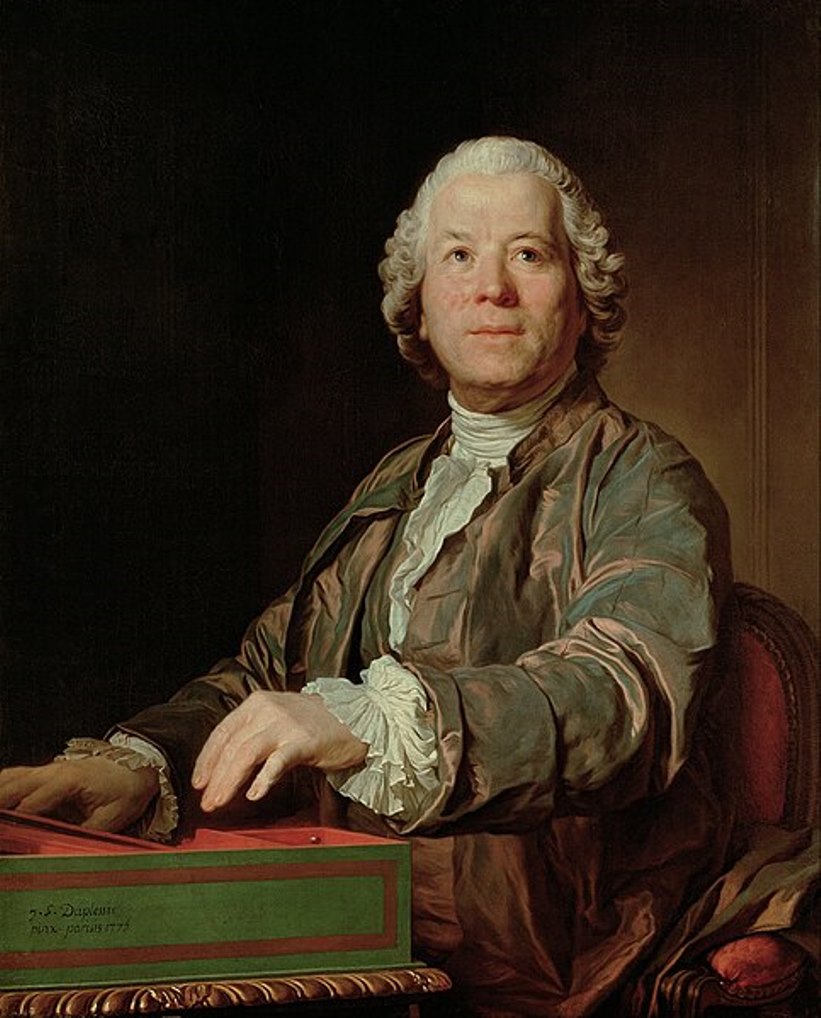
Christoph Willibald Gluck was a German classical composer and reformer of the opera genre.
Christoph showed a talent for music early on, playing violin and cello, leaving home and studying music with various teachers in Prague, Vienna and Milan. In 1741, Gluck had his first significant success with his first opera, Artasers, at the Milan theater. In 1745 Gluck, by then already well known as an opera composer, was invited to England, but in 1750 he settled in Vienna, where he lived for the rest of his life. While in Paris in 1773-79, he won the favor of Louis XVI's wife Marie Antoinette.
Christoph Gluck played a historic role in the formation of a new operatic style, becoming the main reformer in the transition from baroque to classical opera.
During his career, Christoph Gluck composed about 40 operas. Of these, his first "reformist" opera was Orpheus and Eurydice, staged in Vienna in 1762. Next were "Alceste" (1767), "Parida et Helena" (1770), "Iphigenia in Aulida" (1774), a French version of "Orpheus" (1774), and "Iphigenia in Tauris" (1779). He also wrote five ballets, of which Don Giovanni (1761) was one of the first successful action ballets.
Gluck spent the last eight years of his life in Vienna, continuing to work tirelessly. During these years he met several times with Wolfgang Mozart, who by then had already become a bright star.

Christoph Willibald Gluck was a German classical composer and reformer of the opera genre.
Christoph showed a talent for music early on, playing violin and cello, leaving home and studying music with various teachers in Prague, Vienna and Milan. In 1741, Gluck had his first significant success with his first opera, Artasers, at the Milan theater. In 1745 Gluck, by then already well known as an opera composer, was invited to England, but in 1750 he settled in Vienna, where he lived for the rest of his life. While in Paris in 1773-79, he won the favor of Louis XVI's wife Marie Antoinette.
Christoph Gluck played a historic role in the formation of a new operatic style, becoming the main reformer in the transition from baroque to classical opera.
During his career, Christoph Gluck composed about 40 operas. Of these, his first "reformist" opera was Orpheus and Eurydice, staged in Vienna in 1762. Next were "Alceste" (1767), "Parida et Helena" (1770), "Iphigenia in Aulida" (1774), a French version of "Orpheus" (1774), and "Iphigenia in Tauris" (1779). He also wrote five ballets, of which Don Giovanni (1761) was one of the first successful action ballets.
Gluck spent the last eight years of his life in Vienna, continuing to work tirelessly. During these years he met several times with Wolfgang Mozart, who by then had already become a bright star.
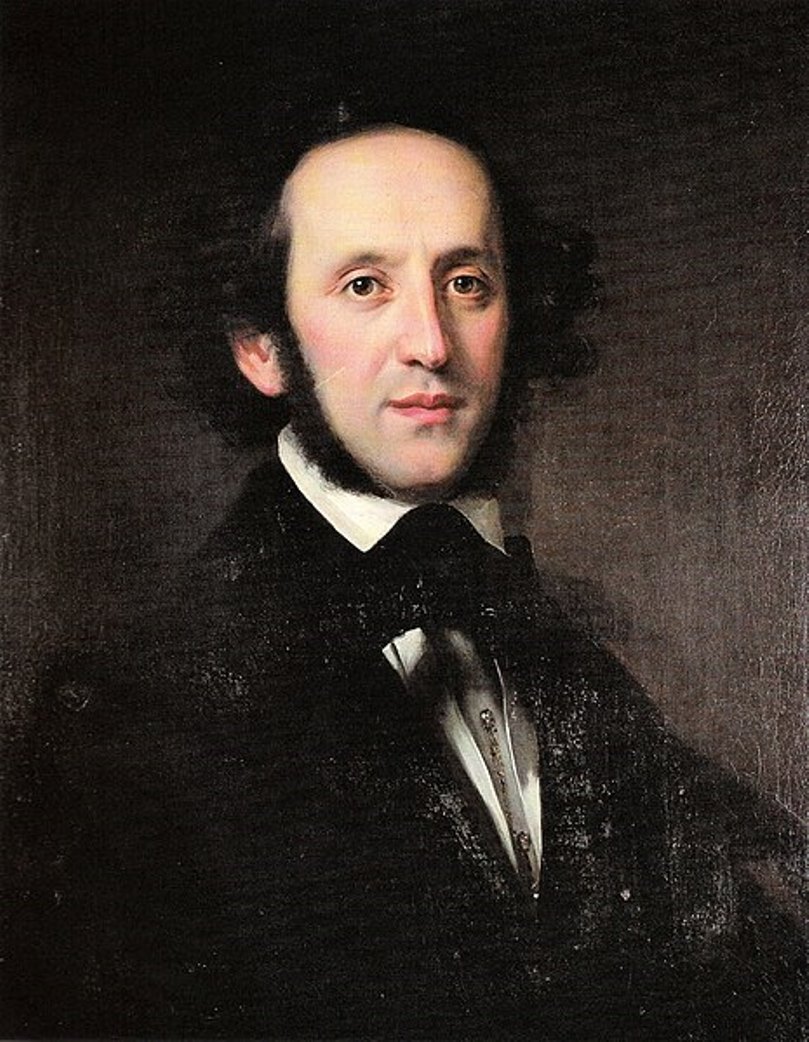
Felix Mendelssohn (full name Jakob Ludwig Felix Mendelssohn Bartholdy) was a German composer, pianist, conductor, teacher, and one of the greatest representatives of Romanticism in music.
Felix was born into a Jewish musical family that later converted to Christianity. He received a versatile education and already as a child wrote many musical compositions, including 5 operas, 11 symphonies for string orchestra, concertos, sonatas and fugues. Mendelssohn's first public performance took place in Berlin in 1818, when he was nine years old. In 1821 Mendelssohn was introduced to J.W. von Goethe, for whom he performed works by J.S. Bach and Mozart and to whom he dedicated his Piano Quartet No. 3 in B minor. A friendship developed between the famous wise poet and the 12-year-old musician.
A few years later, the talented musician began conducting in various orchestras in Europe, and became acquainted with Carl Weber. In England, where Mendelssohn visited very often, by the middle of the 19th century his music had become very popular, even with Queen Victoria he was the most favorite composer. He dedicated his Symphony No. 3 in A minor major (Scottish Symphony) to the Queen.
Among Mendelssohn's most famous works are A Midsummer Night's Dream (1826), the Italian Symphony (1833), a violin concerto (1844), two piano concertos (1831, 1837), the oratorio Elijah (1846) and several chamber pieces. The tradition of playing the "Wedding March" from A Midsummer Night's Dream in wedding processions dates back to its performance at the wedding of a royal princess in 1858, already after Mendelssohn's death.
In 1843, Mendelssohn founded a conservatory in Leipzig, where he taught composition with Schumann. Mendelssohn was one of the first great Romantic composers of the nineteenth century.

Felix Mendelssohn (full name Jakob Ludwig Felix Mendelssohn Bartholdy) was a German composer, pianist, conductor, teacher, and one of the greatest representatives of Romanticism in music.
Felix was born into a Jewish musical family that later converted to Christianity. He received a versatile education and already as a child wrote many musical compositions, including 5 operas, 11 symphonies for string orchestra, concertos, sonatas and fugues. Mendelssohn's first public performance took place in Berlin in 1818, when he was nine years old. In 1821 Mendelssohn was introduced to J.W. von Goethe, for whom he performed works by J.S. Bach and Mozart and to whom he dedicated his Piano Quartet No. 3 in B minor. A friendship developed between the famous wise poet and the 12-year-old musician.
A few years later, the talented musician began conducting in various orchestras in Europe, and became acquainted with Carl Weber. In England, where Mendelssohn visited very often, by the middle of the 19th century his music had become very popular, even with Queen Victoria he was the most favorite composer. He dedicated his Symphony No. 3 in A minor major (Scottish Symphony) to the Queen.
Among Mendelssohn's most famous works are A Midsummer Night's Dream (1826), the Italian Symphony (1833), a violin concerto (1844), two piano concertos (1831, 1837), the oratorio Elijah (1846) and several chamber pieces. The tradition of playing the "Wedding March" from A Midsummer Night's Dream in wedding processions dates back to its performance at the wedding of a royal princess in 1858, already after Mendelssohn's death.
In 1843, Mendelssohn founded a conservatory in Leipzig, where he taught composition with Schumann. Mendelssohn was one of the first great Romantic composers of the nineteenth century.

Felix Mendelssohn (full name Jakob Ludwig Felix Mendelssohn Bartholdy) was a German composer, pianist, conductor, teacher, and one of the greatest representatives of Romanticism in music.
Felix was born into a Jewish musical family that later converted to Christianity. He received a versatile education and already as a child wrote many musical compositions, including 5 operas, 11 symphonies for string orchestra, concertos, sonatas and fugues. Mendelssohn's first public performance took place in Berlin in 1818, when he was nine years old. In 1821 Mendelssohn was introduced to J.W. von Goethe, for whom he performed works by J.S. Bach and Mozart and to whom he dedicated his Piano Quartet No. 3 in B minor. A friendship developed between the famous wise poet and the 12-year-old musician.
A few years later, the talented musician began conducting in various orchestras in Europe, and became acquainted with Carl Weber. In England, where Mendelssohn visited very often, by the middle of the 19th century his music had become very popular, even with Queen Victoria he was the most favorite composer. He dedicated his Symphony No. 3 in A minor major (Scottish Symphony) to the Queen.
Among Mendelssohn's most famous works are A Midsummer Night's Dream (1826), the Italian Symphony (1833), a violin concerto (1844), two piano concertos (1831, 1837), the oratorio Elijah (1846) and several chamber pieces. The tradition of playing the "Wedding March" from A Midsummer Night's Dream in wedding processions dates back to its performance at the wedding of a royal princess in 1858, already after Mendelssohn's death.
In 1843, Mendelssohn founded a conservatory in Leipzig, where he taught composition with Schumann. Mendelssohn was one of the first great Romantic composers of the nineteenth century.

Felix Mendelssohn (full name Jakob Ludwig Felix Mendelssohn Bartholdy) was a German composer, pianist, conductor, teacher, and one of the greatest representatives of Romanticism in music.
Felix was born into a Jewish musical family that later converted to Christianity. He received a versatile education and already as a child wrote many musical compositions, including 5 operas, 11 symphonies for string orchestra, concertos, sonatas and fugues. Mendelssohn's first public performance took place in Berlin in 1818, when he was nine years old. In 1821 Mendelssohn was introduced to J.W. von Goethe, for whom he performed works by J.S. Bach and Mozart and to whom he dedicated his Piano Quartet No. 3 in B minor. A friendship developed between the famous wise poet and the 12-year-old musician.
A few years later, the talented musician began conducting in various orchestras in Europe, and became acquainted with Carl Weber. In England, where Mendelssohn visited very often, by the middle of the 19th century his music had become very popular, even with Queen Victoria he was the most favorite composer. He dedicated his Symphony No. 3 in A minor major (Scottish Symphony) to the Queen.
Among Mendelssohn's most famous works are A Midsummer Night's Dream (1826), the Italian Symphony (1833), a violin concerto (1844), two piano concertos (1831, 1837), the oratorio Elijah (1846) and several chamber pieces. The tradition of playing the "Wedding March" from A Midsummer Night's Dream in wedding processions dates back to its performance at the wedding of a royal princess in 1858, already after Mendelssohn's death.
In 1843, Mendelssohn founded a conservatory in Leipzig, where he taught composition with Schumann. Mendelssohn was one of the first great Romantic composers of the nineteenth century.
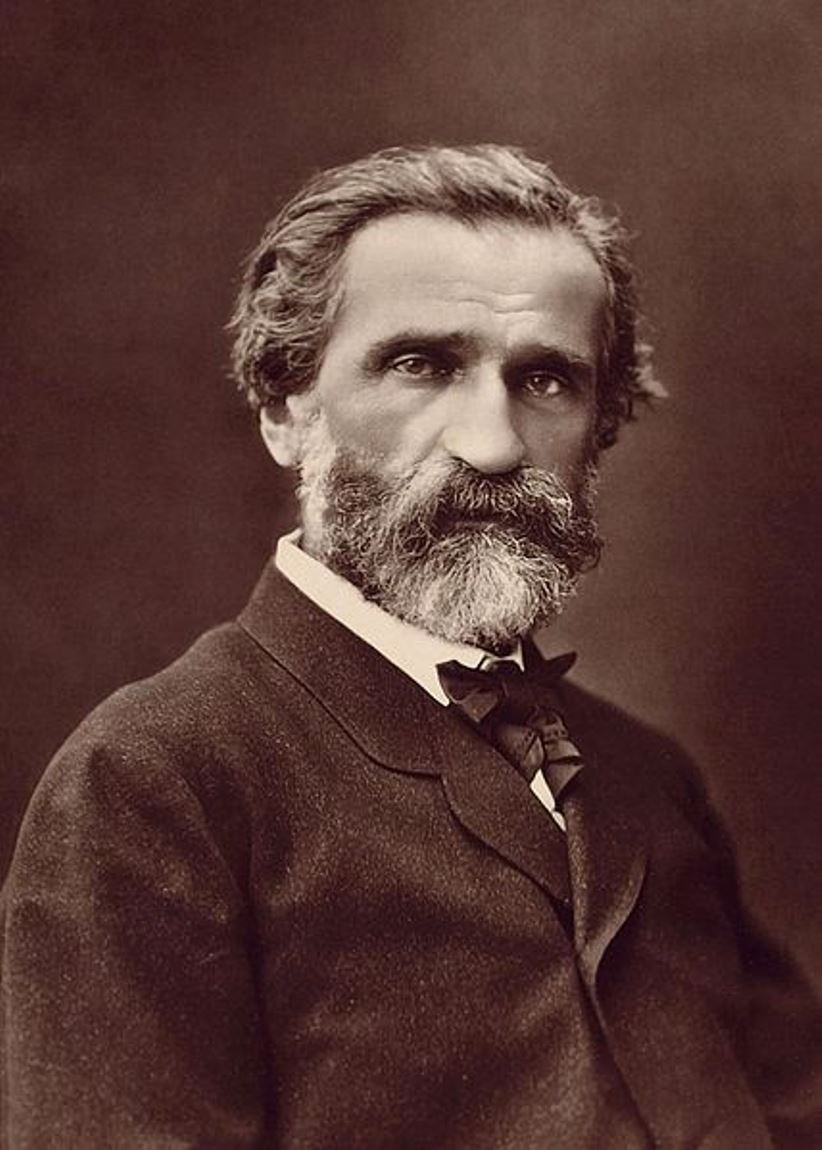
Giuseppe Verdi, full name Giuseppe Fortunino Francesco Verdi, was an Italian opera composer.
The son of a village innkeeper, Giuseppe showed musical talent very early, already playing the organ in church by the age of nine. He studied music in Milan, taught, and in March 1839 staged his first opera "Oberto, conte di San Bonifacio" at La Scala. In 1842 Verdi's opera "Nabucco" was a great success, passing through all the major theaters of Europe.
Verdi wrote a total of 26 operas during his career, the most famous of which are Rigoletto (1851), Trovatore (1853), La Traviata (1853), Don Carlos (1867), Aida (1871), Otello (1887) and Falstaff (1893).
In 1873, Giuseppe Verdi decided to retire from the world of opera. He settled in Sant'Agata, where he became a large landowner and a very wealthy man due to his tireless work in agriculture, he also financed large charitable organizations.
Verdi took a break from these activities for his opera Otello, but after a successful tour of Europe with it, he retreated again to Sant'Agata. The work of Giuseppe Verdi is one of the greatest achievements of world opera art. Many generations of opera lovers still enjoy the composer's brilliant works.
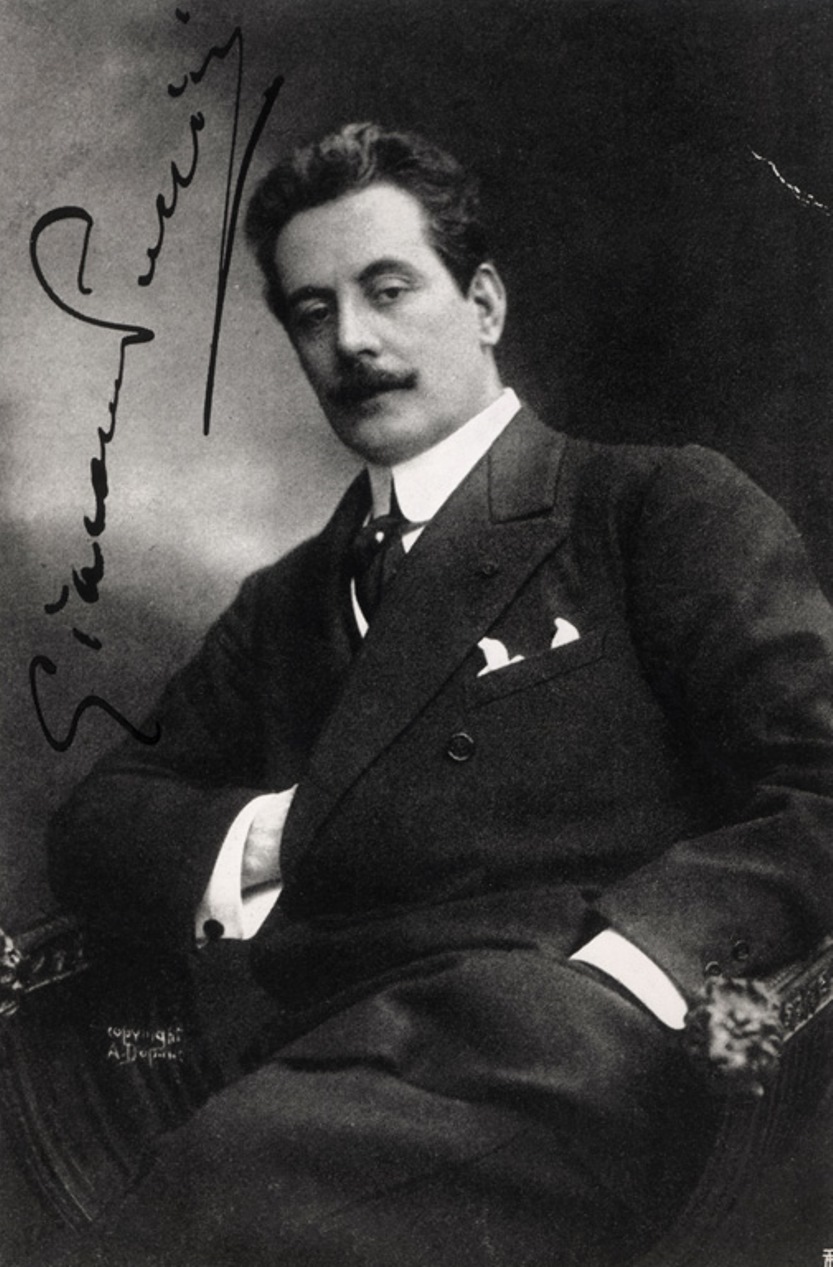
Giacomo Puccini, full name Giacomo Antonio Domenico Michele Secondo Maria Puccini, was an Italian opera composer, organist and choirmaster.
Puccini was born into the family that for two centuries directed the musical organization of the Cathedral of San Martino in Lucca, and the young musician inherited the position of cathedral organist until his adulthood. He also played organ in small local churches. Giuseppe Verdi's opera Aida, which he saw in Pisa in 1876, was a boost for him and he entered the Milan Conservatory in 1880.
Puccini carefully studied contemporary operatic compositions, particularly the work of Claude Debussy, Richard Strauss, Arnold Schoenberg, and Igor Stravinsky. Soon he wrote Triptych (1918), three one-act operas - the melodramatic The Cape, the sentimental Suor Angelica and the comic Gianni Schicchi. Puccini's other mature operas are La bohème (1896), Tosca (1900), and Madama Butterfly (1904).
The composer did not manage to finish his last opera, Turandot - he died of cancer with its score in his hands. This work is the only Italian opera in the Impressionist style. Puccini is also considered the greatest representative of opera realism, as well as the Verismo movement in music, attempting to faithfully portray the social and psychological conflicts of the new national-historical reality after the unification of Italy.


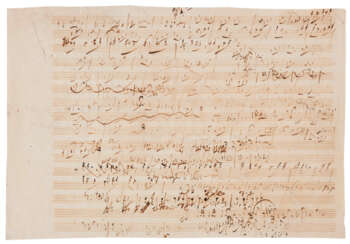

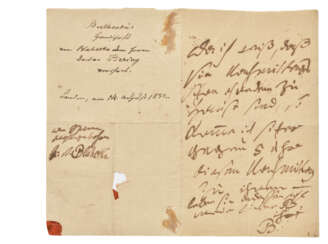



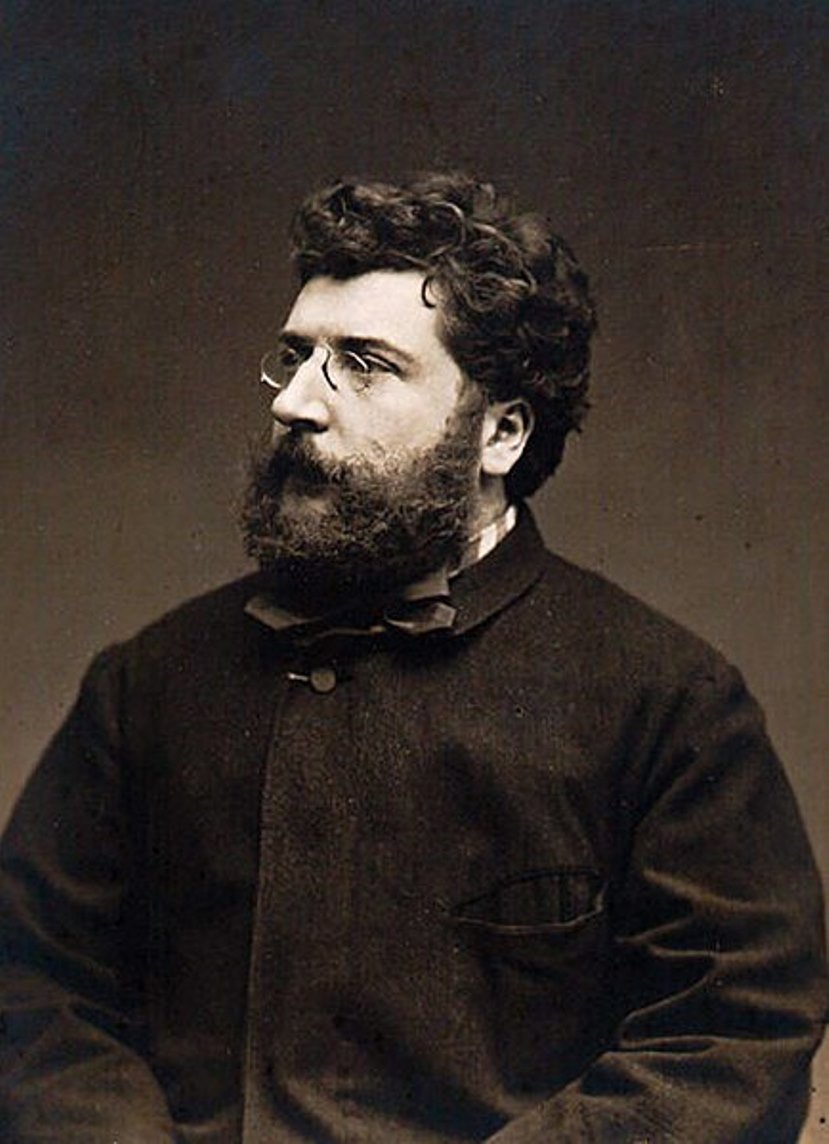
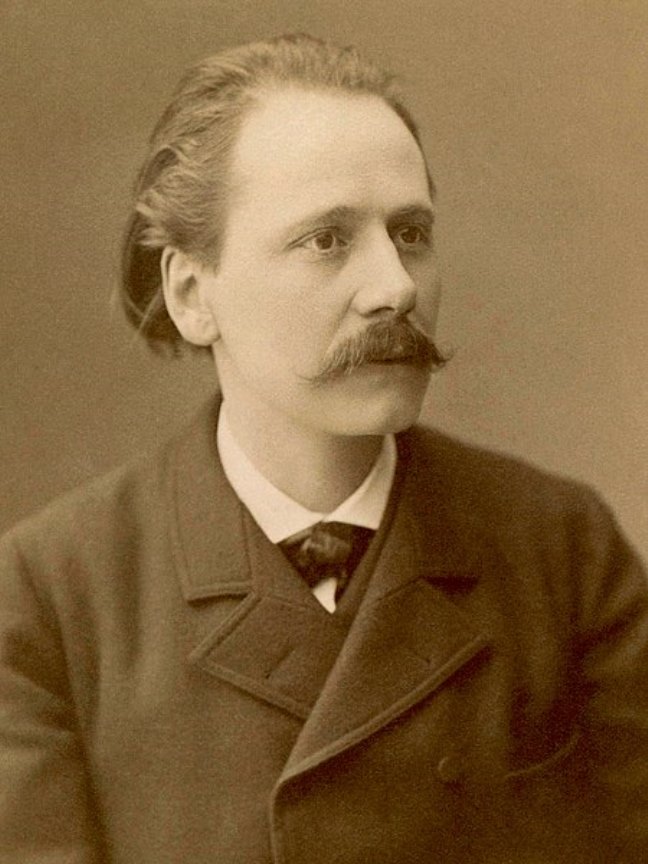
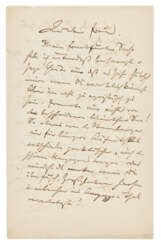

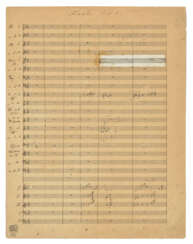

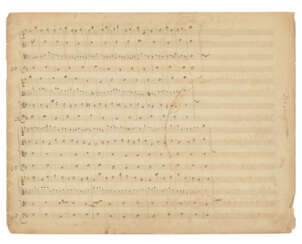

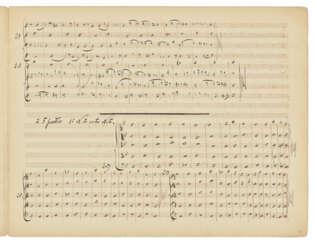

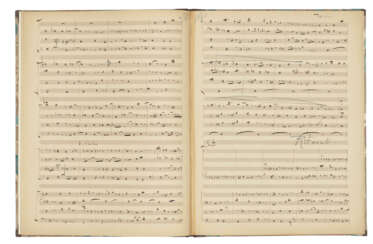

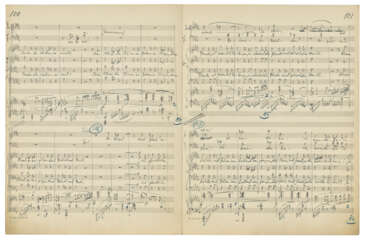

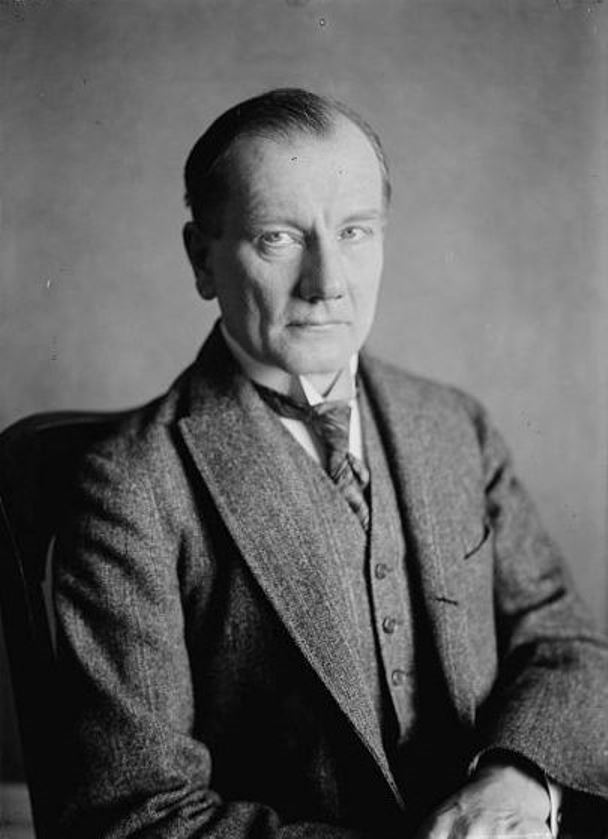
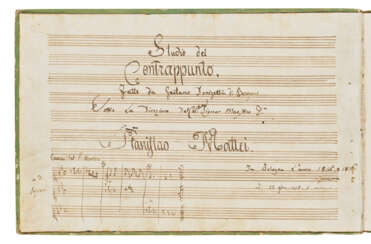

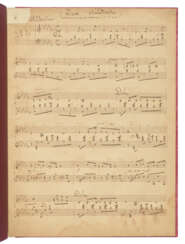

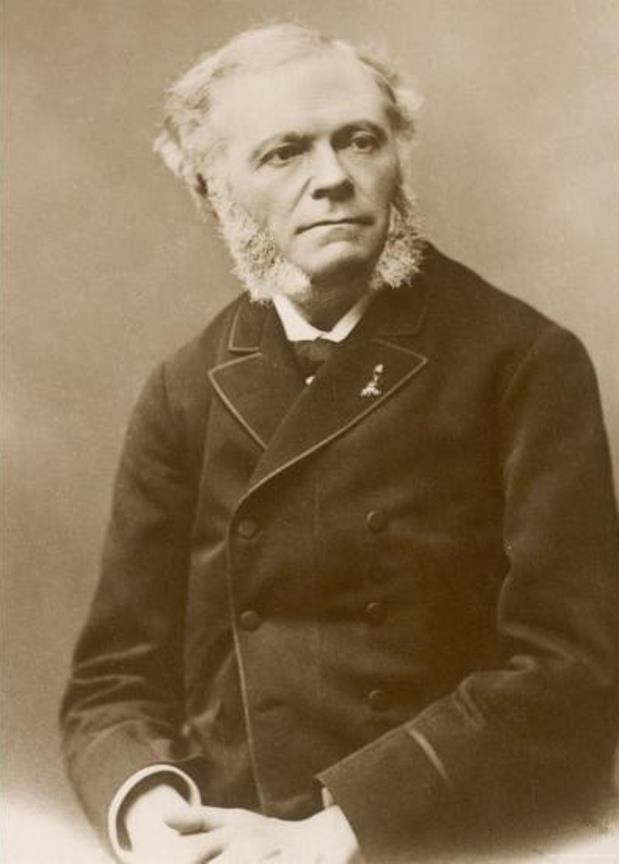
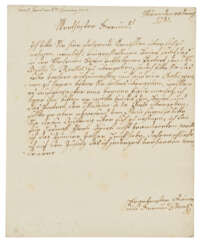

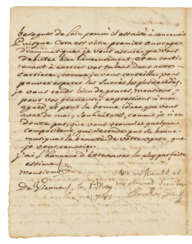

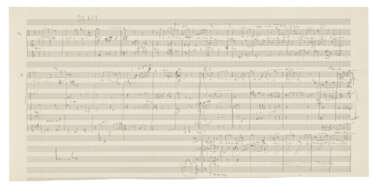

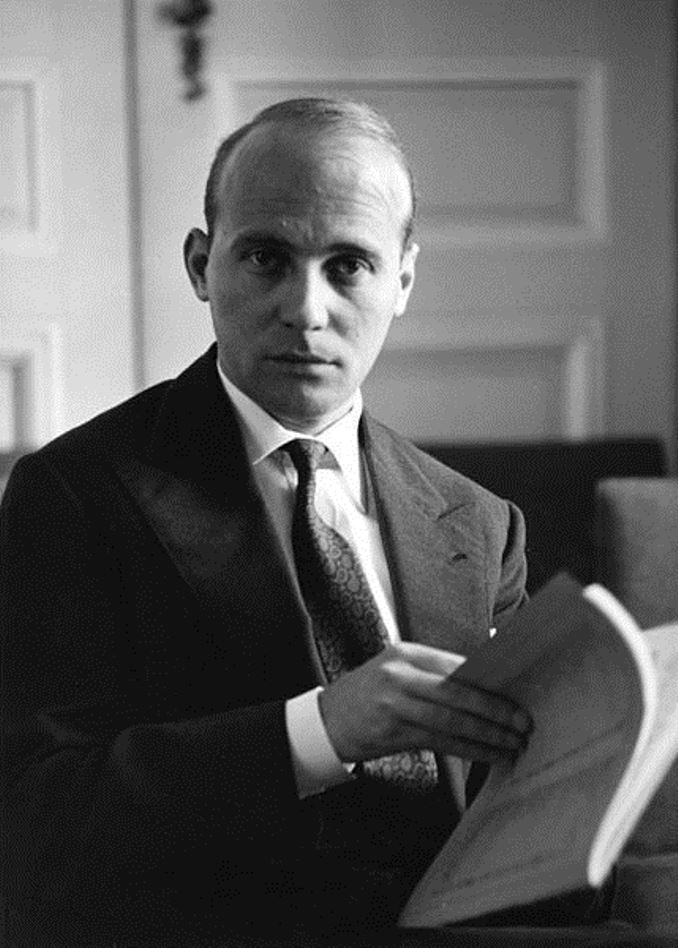



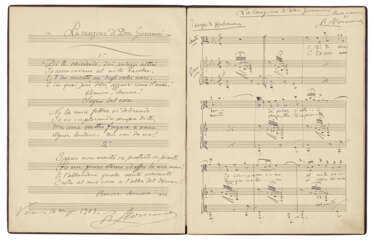


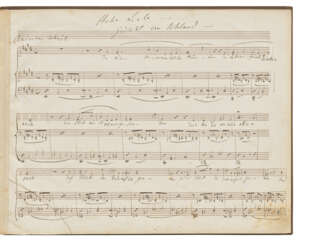

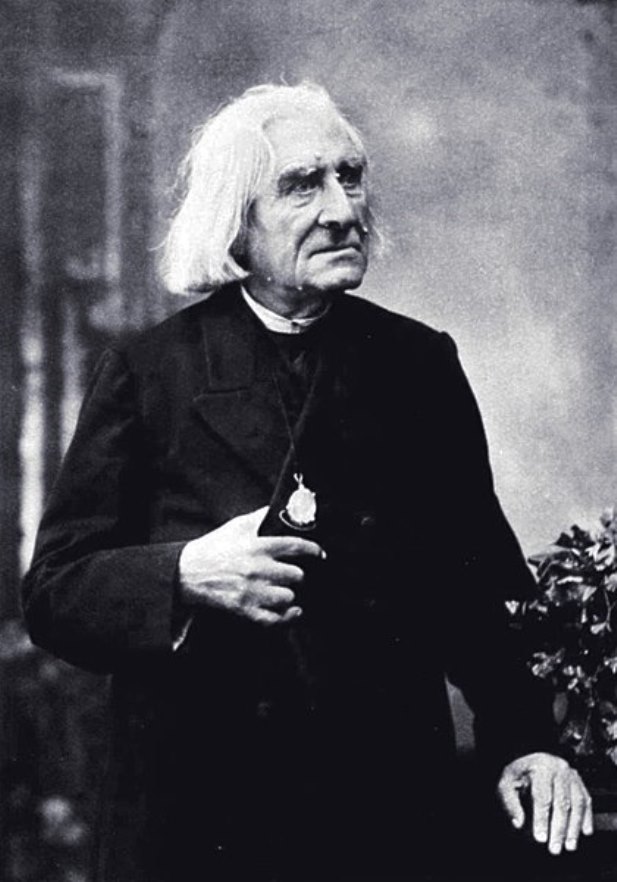
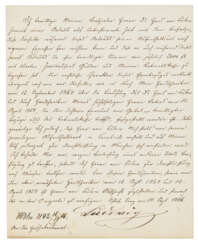

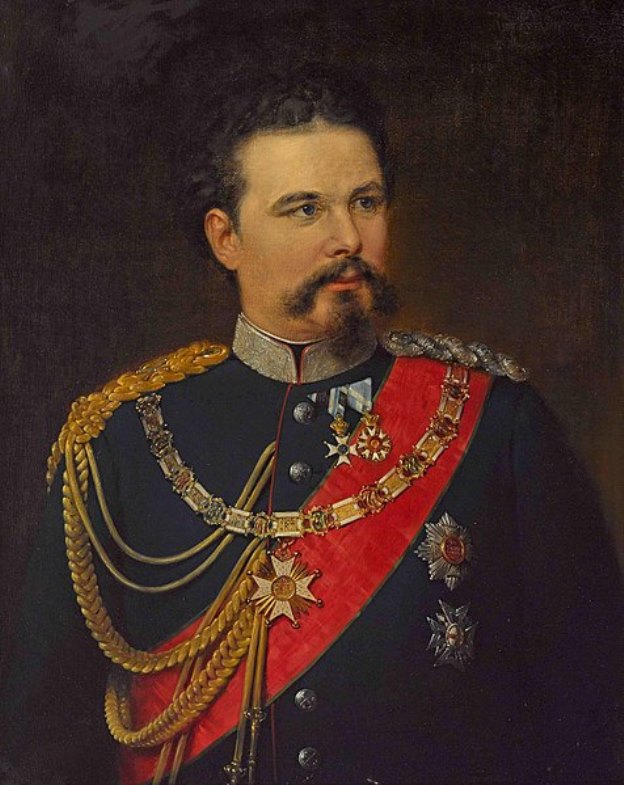
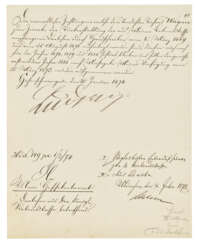

![[Ludwig II (1845-1886), King of Bavaria]](/assets/image/picture_4361417/a713b/619c028ee9c73052fd4bc2c38893d03a1733871600jpg__fix_374_244.jpeg)
![[Ludwig II (1845-1886), King of Bavaria]](https://veryimportantlot.com/assets/image/picture_4361417/a713b/619c028ee9c73052fd4bc2c38893d03a1733871600jpg__fix_374_244.jpeg)
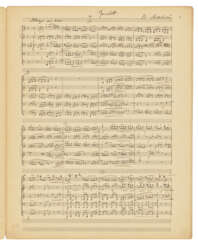




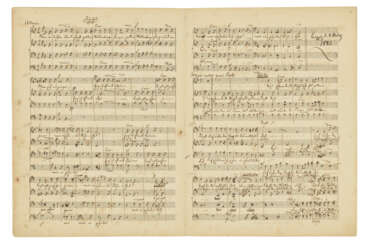

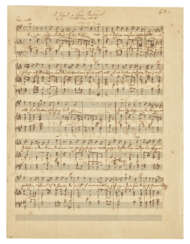



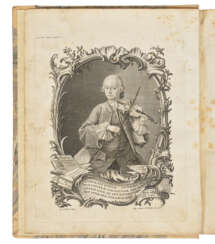

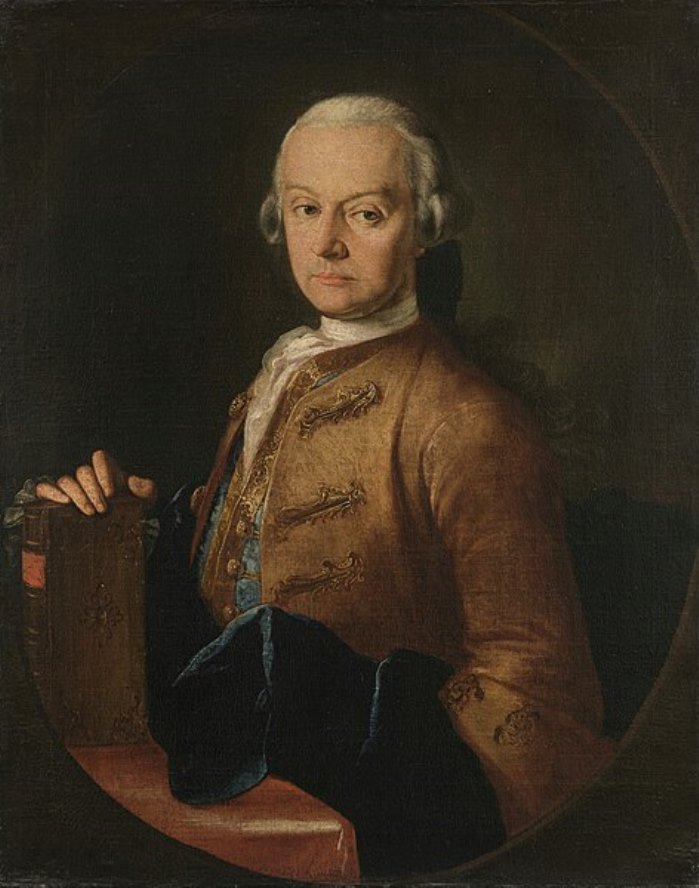
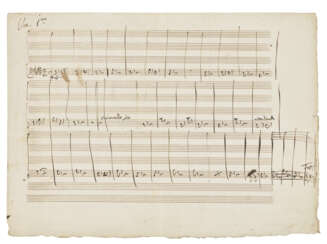

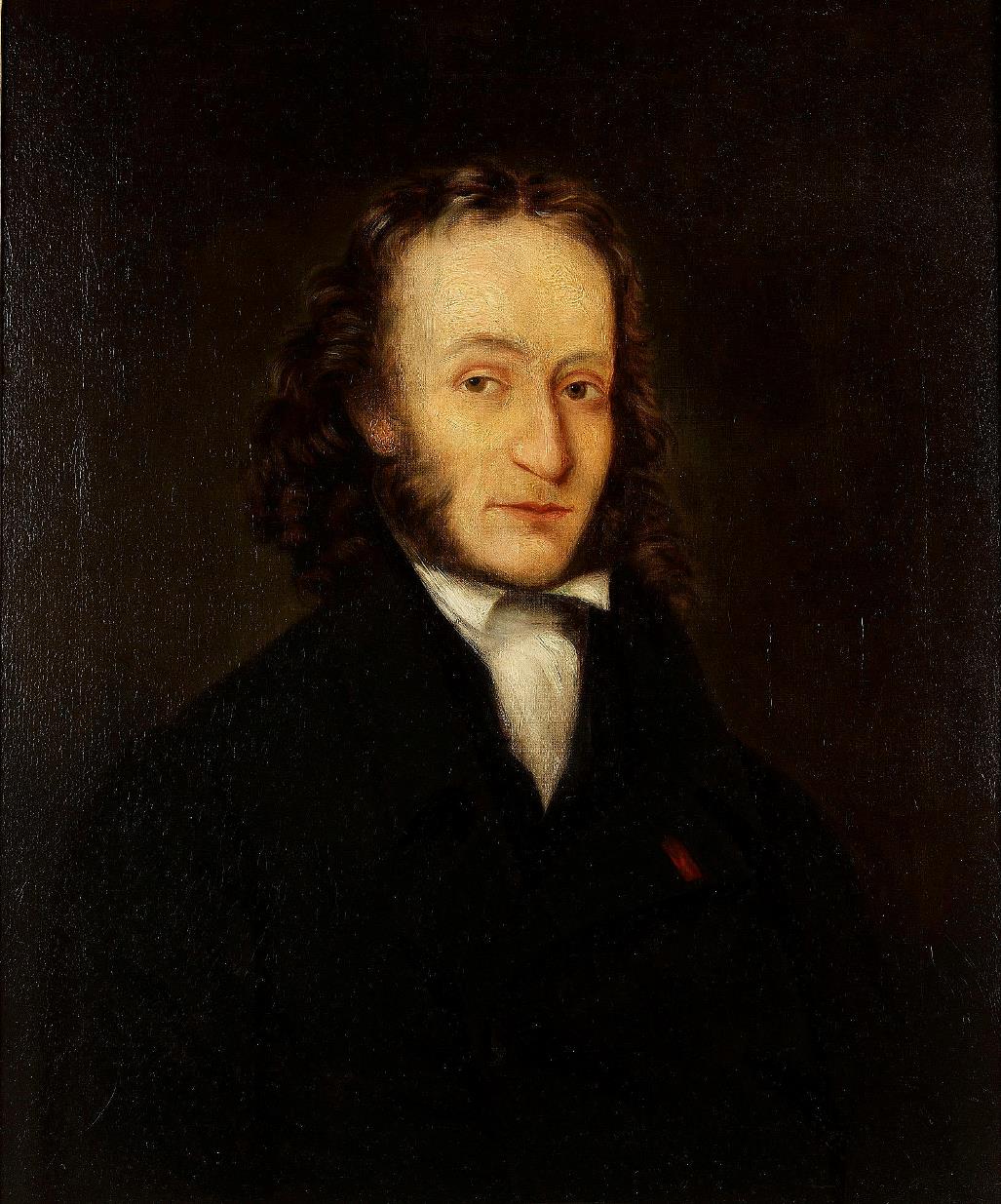
![Francesco Maria Piave (1810-1876) – [Giuseppe Verdi (1813-1901)]](/assets/image/picture_4361092/b52dd/9bf0c3aa8d8cf02c8a808d9e3da16cac1733871600jpg__fix_374_244.jpeg)
![Francesco Maria Piave (1810-1876) – [Giuseppe Verdi (1813-1901)]](https://veryimportantlot.com/assets/image/picture_4361092/b52dd/9bf0c3aa8d8cf02c8a808d9e3da16cac1733871600jpg__fix_374_244.jpeg)

